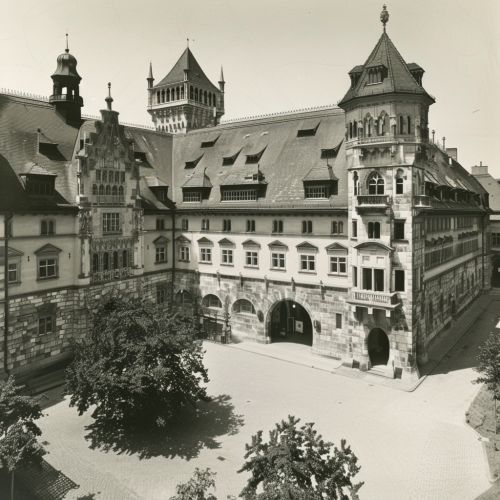Fritz London
Early Life and Education
Fritz Wolfgang London was born on March 7, 1900, in Breslau, Germany (now Wrocław, Poland). His father, Franz London, was a lawyer and his mother, Luise London, was a woman of great intellect who had a profound influence on her son's education. Fritz had two brothers, one of whom was the physicist Heinz London.
Fritz London began his studies at the University of Breslau in 1918, initially focusing on philosophy and mathematics. However, he soon developed an interest in theoretical physics, which led him to transfer to the University of Munich in 1921. There, he studied under the guidance of renowned physicist Arnold Sommerfeld and received his Ph.D. in 1926.


Career and Research
After completing his doctorate, London moved to Berlin where he worked with Max Born at the University of Göttingen. During this time, he made significant contributions to the field of quantum mechanics, particularly in the area of molecular physics. In 1927, he and Walter Heitler published a seminal paper on the quantum mechanics of chemical bonding, which is now known as the Heitler-London method.
In 1933, due to the rise of the Nazi regime in Germany, London, who was Jewish, emigrated to the United States. He initially worked at the Duke University in Durham, North Carolina, where he continued his research on quantum mechanics.
During his time at Duke, London developed the concept of London forces, a type of weak intermolecular force that arises from the quantum mechanical interaction between fluctuating electric charges. This discovery has had a profound impact on the field of physical chemistry and is fundamental to our understanding of the properties of molecules and condensed matter.
In addition to his work on quantum mechanics, London also made significant contributions to the field of low-temperature physics. In 1938, he and his brother Heinz proposed the London equations, which provide a theoretical explanation for the phenomenon of superconductivity. These equations are still widely used in the study of superconductors.
Later Life and Legacy
Fritz London continued to work at Duke University until his death on March 30, 1954. Despite his early death, his contributions to the fields of quantum mechanics and low-temperature physics have left a lasting legacy.
London's work on quantum mechanics, particularly his development of the Heitler-London method and the concept of London forces, has had a profound impact on our understanding of chemical bonding and the properties of molecules. His work on superconductivity, including the development of the London equations, has also been fundamental to the advancement of low-temperature physics.
In recognition of his contributions to the field of theoretical physics, the Fritz London Memorial Prize was established in 1957. This prestigious award is given biennially to scientists who have made outstanding contributions to the field of low-temperature physics.
